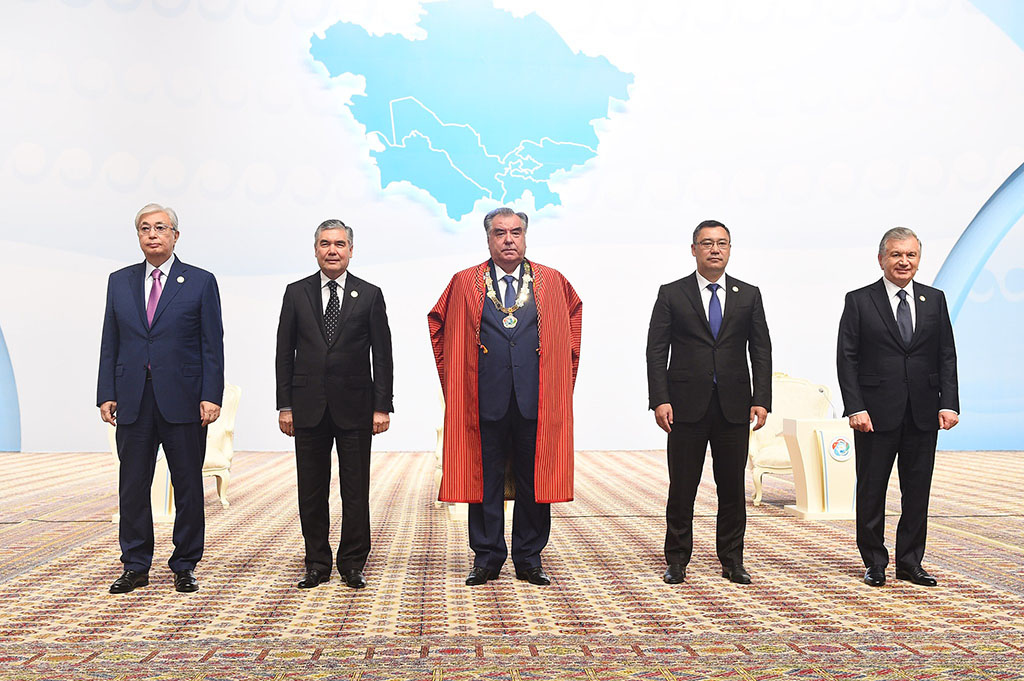Central Asian rulers' coup obsession
From Tajikistan to Kyrgyzstan former leading politicians are on trial on charges of high treason just because they were identified as possible alternatives to ‘dynastic’ successions. While in Kazakhstan on trial is a group that allegedly ‘menacingly’ planned to storm the presidential palace with a tractor and a cannon loaded with potato fragments.
Astana (AsiaNews) - In times of wars and revolutions at every latitude of the globe, Central Asia feels like the epicentre of not just an Asian but a universal tornado, and any suspicion of possible disorder is classified as a ‘coup attempt’.
This allows the presidents, heirs of the Soviet satraps, to impose increasingly authoritarian and repressive policies, justifying themselves with the defence of stability and peace in the region.
In Tajikistan, a large and spectacular trial is currently underway in which the ex-Foreign Minister, the ex-President of the Supreme Court and several colonels of the security services, all figures representing some political opposition, are on the defendants' bench, accused of attempted seizure of power by violence, incitement to national and religious hostility, various frauds and high treason.
Journalists and spectators are not allowed to attend the court sessions, and even relatives have to sign a non-disclosure agreement on what is called the ‘exemplary pillory’ organised by President Emomali Rakhmon, in order to prepare for the succession of his son Rustam Emomali to the presidency, according to Central Asian tradition.
In Kazakhstan in the 30-year post-Soviet period, there have been several ‘quasi-revolutions’, some bordering on the absurd, and currently on trial is a group that allegedly expressed the intention to ‘tar the Akorda with a tractor’, reducing the sumptuous presidential palace to a pile of ruins.
The security services confiscated the menacing tractor together with a ‘potato cannon’, a tool that shoots potato fragments to scare off birds, or even just for fun; also in the attackers' arsenal were an air rifle, a large kitchen knife and pieces of country armour.
The seven suspects have been in prison since November 2022, on the eve of the presidential elections that confirmed the power of the ‘great successor’ Kasym-Žomart Tokaev.
The country where the most often repeated overthrows of power, with alternating political-oligarchical teams, have taken place is Kyrgyzstan, where the so-called ‘Kempir-Abad case’ has been dragging on since the end of 2022.
Some 20 people including politicians, human rights activists and well-known publicists are accused of treason for opposing the cession of the important reservoir to Uzbekistan's neighbours, a position considered to be one of ‘public disorder’. What was considered an ‘island of democracy’ in Central Asia, under the presidency of Sadyr Žaparov is increasingly adapting to the system that prevents any voice out of the chorus.
In Uzbekistan and Turkmenistan, too, proceedings are underway that are difficult to understand, classified as attempts on the lives of presidents and key leaders. In Tashkent, the last real coup took place in February 1999, with powerful explosions around the government palace and in the central square, leaving 13 dead and 100 injured.
The then president Islam Karimov blamed these events on ‘religious extremists’, excluding any movement that had anything to do with Islam from the political life of the country, and guaranteeing himself a quarter of a century of unchallenged power.
His successor Šavkat Mirziyoyev has maintained the line of absolutist secularism, and lately he has also thrown into the cauldron of local mafia wars some possible opponents who jeopardise Uzbekistan's ‘bright future’.
In 2002, Turkmenistan's secret service claimed to have foiled a coup attempt when gunshots tried to interrupt the procession of President Saparmyrat Nijazov, predecessor of the current Berdymukhamedov dynasty. The then vice-premier Boris Šikhmuradov was accused, and 46 people were arrested with him.
Since then, there has been a succession of arrests and resignations of civil servants, even recently, on unclear or completely non-existent grounds, under the general suspicion of ‘attack on the established order’ of the ‘fathers and sons of the Turkmen fatherland’.
As Central Asian expert Bruce Pannier puts it, the classical accusation of ‘terrorism’ has long since been set aside because it ‘doesn't work’, as it is too lacking in credibility, while all it takes is a gathering of opposition figures to speak of ‘conspiracy and treason’ against the state and its representatives, closing the doors of prisons and courts and securing their unchallenged power.
11/08/2017 20:05







.png)










